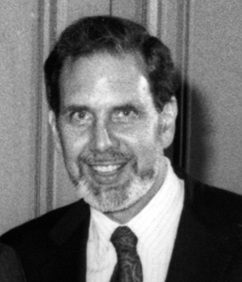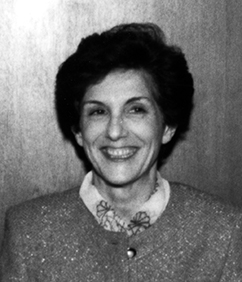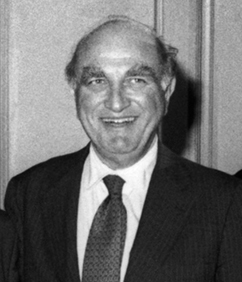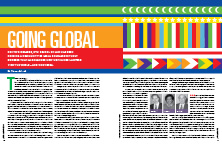Going Global
For two decades, NYU School of Law has been forging a community of legal scholars without borders that has changed how US-trained lawyers view the world—and vice versa.
Printer Friendly VersionThe year was 1993.
Outgoing President George H.W. Bush and Russian Federation President Boris Yeltsin signed a nuclear disarmament treaty. A new US president, Bill Clinton, forged the North American Free Trade Agreement. The European Union and something called the World Wide Web were born—heralds of international cooperation in commerce, science, transportation, finance, communications, and human rights. Economists and government leaders began using a new term to describe a nascent world of interdependent nations: “globalization.”

John Sexton
At the same time, a radical mission expansion at New York University School of Law was about to occur. In the summer of ’93, John Sexton, then dean of the Law School, began discussions with colleagues about an idea both brash and logical, namely, bringing the whole world of jurisprudence to Washington Square.
The result is today’s Hauser Global Law School Program, launched in the fall of 1995 as something completely different. Rather than the study of international law, NYU Law would have an international program for the study of law. “The creation of the Hauser Global Law School Program made a statement that the community of legal scholars ought to be truly global in scope, and without simultaneously setting out any sort of imperialistic agenda,” says Kevin Davis, Beller Family Professor of Business Law and since 2012 vice dean for global affairs.
The dean of NYU Law, Trevor Morrison, who arrived in 2013, concurs: “NYU Law embarked on this ambitious path to become a global law school following a bold and well-conceived plan. What distinguishes this school and enables its success time and again is the capacity of our faculty and students to embrace and incorporate new ideas. Here, it was nothing less than reconceiving how a US-based law school could execute a truly global agenda.”
The program, says Sexton, “lets us think of law in an ecumenical way by bringing together scholars from all over, by creating a world network. If there weren’t such a program, the forces of nativism could overwhelm us.”

Rita Hauser
Sexton’s nascent ambition to transform the Law School was encouraged by alumna Rita Hauser and Norman Dorsen, Frederick I. and Grace A. Stokes Professor of Law.
“I thought American law students were extremely parochial at that time,” says Hauser, former ambassador to the United Nations Commission on Human Rights who served both George W. Bush and Barack Obama as a member of the President’s Intelligence Advisory Board. “For them, American law was the be all and end all. Law schools were shortchanging their students. We had to think of a different approach.”
Sexton and Hauser approached Dorsen to take charge of the idea. Although Dorsen is known for his scholarship in US constitutional law and civil rights, he had international experience as a lecturer and had participated in human rights missions to Egypt, Northern Ireland, and the Philippines. Sexton remembers telling Dorsen, “Norman, you’re a world figure of great stature. The whole purpose here is that there are no boundaries. This is a good concept, and you should be its leader.”
Dorsen accepted the challenge, which he defined as, “How do you find a faculty to become part of a program they never heard of?” Established with an initial $6 million donation from Rita and Gustave Hauser LLM ’57, the program, then called the Global Law School Program, brought foreign faculty, postdoctoral scholars, and postgraduate law students to NYU each year to co-teach and research with their American counterparts—with cross-cultural benefits for all.

Norman Dorsen
Dorsen, who served the Global Law School Program as its founding director until 2002, now says, “We plotted out this whole thing. And what happened? It worked.” The first class of eight global faculty recruited by Dorsen included Sir John Baker, then-dean of faculty at the University of Cambridge and an English legal historian; Justice Menachem Elon of the Israeli Supreme Court; and Ambassador Hisashi Owada, Japan’s then permanent representative to the United Nations. Over the last three decades, the global faculty has comprised Giuliano Amato, former prime minister of Italy; Catherine O’Regan, former justice of the Constitutional Court of South Africa; Dieter Grimm, former judge of the Federal Constitutional Court of Germany; and Dorit Beinisch, former president of the Supreme Court of Israel. Several current full-time members of the faculty began as global faculty as well: Philip Alston, John Norton Pomeroy Professor of Law; Professor Franco Ferrari, director of the Center for Transnational Litigation, Arbitration, and Commercial Law; David Garland, Arthur T. Vanderbilt Professor of Law; Moshe Halbertal, Gruss Professor of Law; and Gráinne de Búrca, Florence Ellinwood Allen Professor of Law, who is the current faculty director of the Hauser Global Law School Program.
The program encompasses more than faculty: it also includes 10 to 20 scholarships for foreign lawyers to pursue their LLM degrees; fellowships for academics, government officers, and lawyers from abroad; and a distinguished global fellows rotation of two-week visits to NYU Law.
[SIDEBAR: One for All: The Hauser 20th Anniversary]
In 2002, the Hausers made an additional $5 million donation and the program was renamed the Hauser Global Law School Program. University Professor Joseph Weiler, Joseph Straus Professor of Law, and University Professor Richard Stewart, John Edward Sexton Professor of Law, took the Hauser program into its second decade.
Weiler, an expert on international law and the European Union who is currently on leave to serve as president of the European University Institute in Florence, Italy, focused his efforts on orienting the program more prominently toward scholarship and the nurturing of young international scholars. He launched the Global Working Paper Series, beefed up the LLM program for overseas students, and achieved full funding for a JSD program.
When he became faculty director of the Hauser program in 2007, Stewart, now faculty director of the Frank J. Guarini Center on Environmental, Energy, and Land Use Law, focused on creating a bridge between developed and developing nations by forging partnerships with universities predominantly in the Southern Hemisphere. Stewart and Benedict Kingsbury, Murry and Ida Becker Professor of Law, are credited with defining the field of global administrative law and, through this, developed a large network of legal scholars and practitioners to tap from across the globe.
De Búrca became director of the Hauser program in 2013. A graduate of King’s Inns and University College Dublin and an expert in European Union law, she was one of the youngest fellows appointed to Oxford University and one of the first female law professors at the European University Institute. In 2005, she was appointed a Hauser Global Visiting Professor; six years later she joined NYU Law’s permanent faculty.
“We increase our network year by year,” says de Búrca. “It’s a flow, an interchange. We’re creating lifelong associations in a way that no other US law school does.”
Going forward, she adds, she will forge relationships in places where the program hasn’t yet reached, such as parts of Africa.
[SIDEBAR: Inaugural Conference on the Bernstein Institute Focuses on Inequality and Discrimination]
A lot has changed in the world since 1993. Then, Harvard’s law school had an elective international curriculum that was fading through faculty attrition, says Rita Hauser, who began her legal education there, but ultimately received her LLB from NYU Law. “But when NYU got going with a global program, it was an inspiration to Harvard,” she adds. “Now they require international studies. And now every law school of consequence has a program of comparative, global, international law.”
Looking at law from a global perspective, says Vice Dean Davis, transcends the notion of studying “international law,” with its traditional focus on regulating state behavior, such as in the laws of war or the law of the sea. It goes beyond comparing US domestic law with foreign regimes as well. “In my own work on anticorruption law,” says Davis, “I mix it all up—international, comparative, domestic. It’s become artificial to separate them.”
The global initiative at NYU Law has expanded its dimensions beyond the Hauser program. After two decades of the program’s inviting global faculty, fellows, and students to Washington Square, NYU Law is completing the circle. The new phase of the global initiative, says Davis, is “taking NYU Law faculty and students to the world.”
Two years ago, the Law School established NYU Law Abroad, under which NYU Law students study and work in Buenos Aires, Paris, and Shanghai. “This does not involve just sending students to other schools,” says Davis. “What we’ve actually done is hired our own faculty abroad and developed our own approach.” In Spring 2015, 50 students in their last semester participated, many of them supported by the Public Interest Law Center.
Taking stock of the Law School’s global initiatives now, Davis says this: “With a substantial proportion of our faculty and students hailing from overseas, a steady stream of faculty and scholars visiting from other countries, as well as students and alumni studying and working around the world, our teaching, perspectives, and outlook are becoming truly global.”
—Thomas Adcock is a freelance writer in New York City.
—


 Multimedia
Multimedia